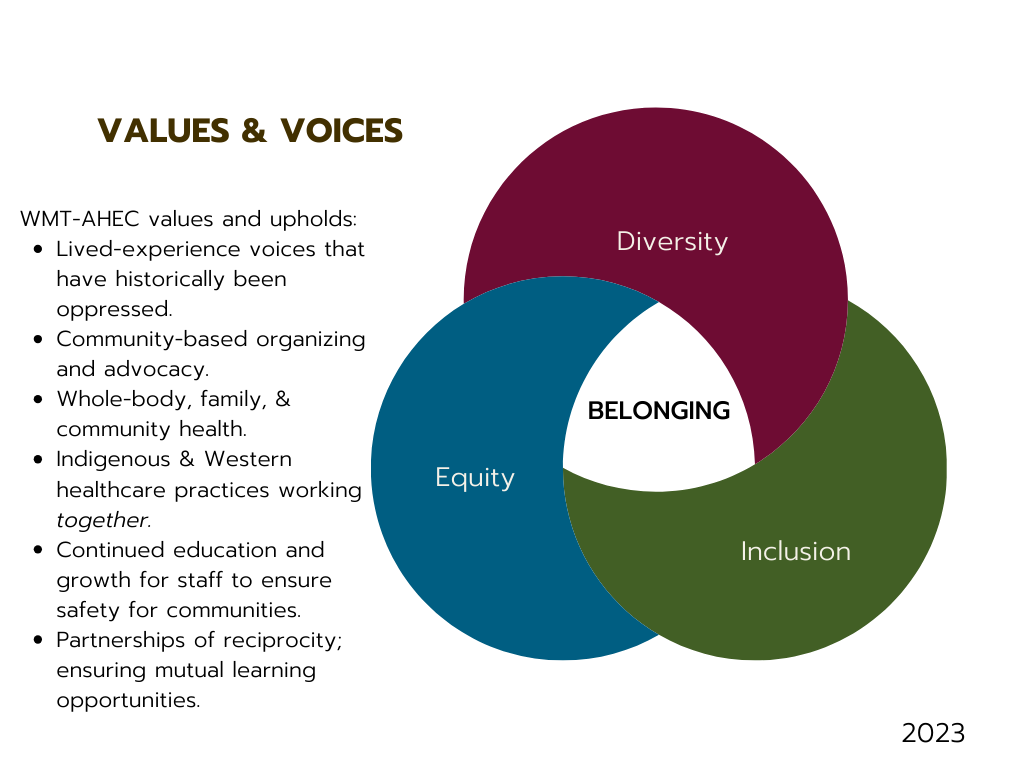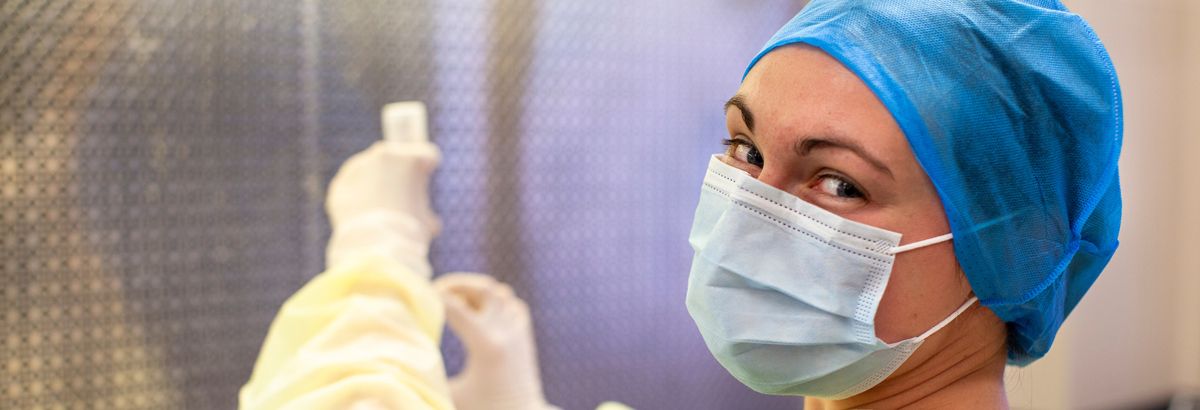Where We Began
In 2022, WMT-AHEC began the internal work to capture the already existing values and beliefs around Diversity, Equity, Inclusion, and Belonging (DEIB) and to further educate staff and partners around the steps needed to continue the growth.
While learning and examining the state of WMT-AHEC's programming; transparency and relationship building with communities and underserved populations in Western Montana remained a priority.
WMT-AHEC's Diversity Equity and Inclusion Practitioner, Chelsea Bellon supported WMT-AHEC's growth and internal dialogue with an internal review and program implementation. You can find the reflective report here.

Supporting Programs: DEIB Education, Evaluation, and Implementation
WMT-AHEC has the capacity to support departments, organizations, programming, accredidation, and more. A combination of training and certification from Cornell University with lived-experience, WMT-AHEC's Health Equity and Community Engagement Specialist & DEI Practitioner, Chelsea Bellon can create specific work plans and training materials.
If you're interested in a consultation or learning more about why DEIB is imperative to healthcare, please contact Chelsea Bellon: chelsea.bellon@umt.edu
DEIB Committment
Diversity, equity, inclusion, and belonging (DEIB) are core tenets of the Western Montana Area Health Education Center (WMT-AHEC). We recognize that by actively practicing DEIB methods it strengthens our resolve to recruit, train, and retain a health professions workforce committed to providing the best care possible for rural and underserved populations. WMT-AHEC believes that by engaging in thoughtful and respectful DEIB practices, it will enrich the whole community and promote a culture of education and reflection.
We are dedicated to learning about and incorporating best practices for DEIB within our internal office policies, health education and workforce programming, and community engagement. Our team values the voices and stories from those in our communities with lived experiences. We strive to learn from those experts when guiding our work while aiding our communities through action.
